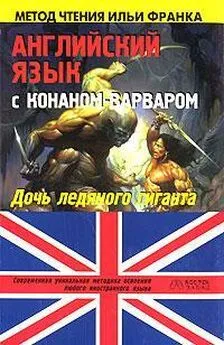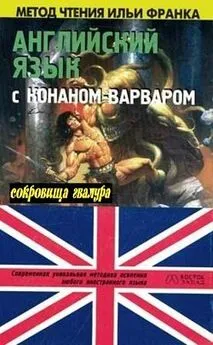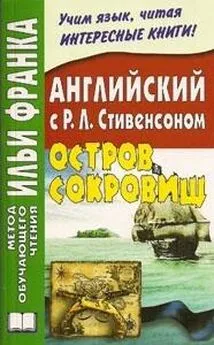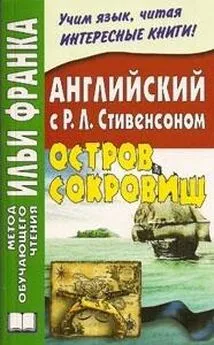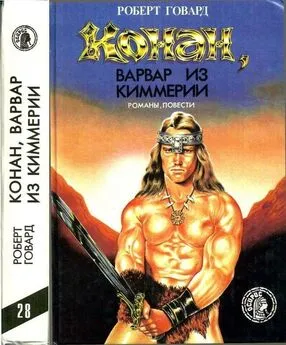Роберт Говард - Английский язык с Конаном-варваром
- Название:Английский язык с Конаном-варваром
- Автор:
- Жанр:
- Издательство:АСТ, Восток-Запад
- Год:2007
- Город:Москва
- ISBN:5-17-042032-3, 5-478-00503-7
- Рейтинг:
- Избранное:Добавить в избранное
-
Отзывы:
-
Ваша оценка:
Роберт Говард - Английский язык с Конаном-варваром краткое содержание
В книге предлагается произведения Роберта Е. Говарда, адаптированные (без упрощения текста оригинала) по методу Ильи Франка. Уникальность метода заключается в том, что запоминание слов и выражений происходит за счет их повторяемости, без заучивания и необходимости использовать словарь. Пособие способствует эффективному освоению языка, может служить дополнением к учебной программе. Предназначено для студентов, для изучающих английский язык самостоятельно, а также для всех интересующихся английской культурой.
Метод чтения Ильи Франка
Содержание:
Дочь ледяного великана
Проклятие монолита
Замок ужаса
За Черной рекой
Тени Замбулы
Английский язык с Конаном-варваром - читать онлайн бесплатно полную версию (весь текст целиком)
Интервал:
Закладка:
boot [bu: t], razor [ˈreɪzə], indicate [ˈɪndɪkeɪt]
Balthus muttered a horrified oath. It was the body of a man which lay there in the trail, a short, fat man, clad in the gilt-worked boots and (despite the heat) the ermine-trimmed tunic of a wealthy merchant. His fat, pale face was set in a stare of frozen horror; his thick throat had been slashed from ear to ear as if by a razor- sharp blade. The short sword still in its scabbard seemed to indicate that he had been struck down without a chance to fight for his life.
"A Pict?" Balthus whispered, as he turned to peer into the deepening shadows of the forest (пикт? — прошептал Балтус, когда он обернулся, /чтобы/ всмотреться в густеющие тени леса).
Conan shook his head and straightened to scowl down at the dead man (Конан отрицательно покачал /своей/ головой и выпрямился, /чтобы/ посмотреть сердито /вниз/ на мертвого человека = мертвеца ).
"A forest devil (лесной дух: «дьявол»). This is the fifth, by Crom (это /есть/ пятый, /клянусь/ Кромом)!"
"What do you mean (что ты имеешь в виду; to mean — иметь в виду, подразумевать) ?"
"Did you ever hear of a Pictish wizard called Zogar Sag (ты когда-нибудь слышал о пиктском чародее, называемым = по имени Зогар Саг)?"
Balthus shook his head uneasily (Балтус покачал /своей/ головой беспокойно; easy — удобный; легкий; спокойный, хорошо себя чувствующий ).
turn [tə: n], fifth [fɪfƟ], scowl [skaul]
"A Pict?" Balthus whispered, as he turned to peer into the deepening shadows of the forest.
Conan shook his head and straightened to scowl down at the dead man. "A forest devil. This is the fifth, by Crom!"
"What do you mean?"
"Did you ever hear of a Pictish wizard called Zogar Sag?" Balthus shook his head uneasily.
"He dwells in Gwawela, the nearest village across the river (он живет в Гвавеле, ближайшем поселке за рекой). Three months ago he hid beside this road and stole a string of pack-mules from a pack-train bound for the fort — drugged their drivers, somehow (три месяца назад он спрятался возле этой дороги и украл караван вьючных мулов из вьючного обоза, направлявшегося в форт, отравил их погонщиков каким-то образом; to drug — отравить, опоить наркотиками / ядом ). The mules belonged to this man (мулы принадлежали этому человеку)" — Conan casually indicated the corpse with his foot (Конан мимоходом показал на труп /своей/ ногой) — "Tiberias, a merchant of Velitrium (Тибериас, купец из Велитриума). They were loaded with ale-kegs, and old Zogar stopped to guzzle before he got across the river (они были нагружены бочонками с элем, и старый Зогар остановился, /чтобы/ напиться, прежде чем перебрался через реку; to get across — перебраться ). A woodsman named Soractus trailed him, and led Valannus and three soldiers to where he lay dead drunk in a thicket (лесной житель по имени Сорактус выследил его и привел Валаннуса и трех солдат к /тому месту/, где он лежали мертвецки пьяный в кустарнике). At the importunities of Tiberias, Valannus threw Zogar Sag into a cell, which is the worst insult you can give a Pict (по настоянию Тибериаса, Валаннус бросил Зогара Сага в тюремную камеру, что является самым худшим оскорблением, которое ты можешь дать = нанести пикту; to throw — бросать ). He managed to kill his guard and escape (он смог = ему удалось убить /его/ охрану и сбежать), and sent back word that he meant to kill Tiberias and the five men who captured him in a way that would make Aquilonians shudder for centuries to come (и /он/ отослал назад сообщение, что он собирается убить Тибериаса и пятерых людей, которые взяли его в плен, /таким/ способом, который заставит аквилонцев содрогаться = от которого аквилонцы будут содрогаться на протяжении грядущих столетий; to mean — намереваться; to capture — взять в плен ).
village [ˈvɪlɪʤ], river [ˈrɪvə], month [mʌnƟ]
"He dwells in Gwawela, the nearest village across the river. Three months ago he hid beside this road and stole a string of pack-mules from a pack-train bound for the fort — drugged their drivers, somehow. The mules belonged to this man" — Conan casually indicated the corpse with his foot — "Tiberias, a merchant of Velitrium. They were loaded with ale-kegs, and old Zogar stopped to guzzle before he got across the river. A woodsman named Soractus trailed him, and led Valannus and three soldiers to where he lay dead drunk in a thicket. At the importunities of Tiberias, Valannus threw Zogar Sag into a cell, which is the worst insult you can give a Pict. He managed to kill his guard and escape, and sent back word that he meant to kill Tiberias and the five men who captured him in a way that would make Aquilonians shudder for centuries to come.
"Well, Soractus and the soldiers are dead (ну, Сорактус и солдаты мертвы). Soractus was killed on the river, the soldiers in the very shadow of the fort (Сорактус был убит на реке, солдаты в самой тени форта = прямо у форта ). And now Tiberias is dead (а теперь Тибериас мертв). No Pict killed any of them (ни один пикт /не/ убил кого-либо = никого из них). Each victim — except Tiberias, as you see — lacked his head — which no doubt is now ornamenting the altar of Zogar Sag's particular god (каждая жертва — за исключением Тибериаса, как ты видишь — была без головы: «не хватало /своей/ головы» — которая, несомненно, сейчас украшает алтарь особого бога Зогара Сага; to lack — не хватать, недоставать )."
very [ˈverɪ], victim [ˈvɪktɪm], altar [ˈɔ: ltə]
"Well, Soractus and the soldiers are dead. Soractus was killed on the river, the soldiers in the very shadow of the fort. And now Tiberias is dead. No Pict killed any of them. Each victim — except Tiberias, as you see — lacked his head — which no doubt is now ornamenting the altar of Zogar Sag's particular god."
"How do you know they weren't killed by the Picts?" demanded Balthus (как = откуда ты знаешь, что они не были убиты пиктами? — спросил Балтус). Conan pointed to the corpse of the merchant (Конан показал на труп купца). "You think that was done with a knife or a sword (ты думаешь, /что/ это было сделано ножом или мечом; to do — делать )? Look closer and you'll see that only a talon could have made a gash like that (посмотри поближе и /ты/ увидишь, что только коготь мог сделать глубокую рану как эта = такую глубокую рану ). The flesh is ripped, not cut (плоть разорвана, не разрезана)."
"Perhaps a panther — " began Balthus, without conviction (может, пантера, — начал Балтус без уверенности: «без убежденности»).
Conan shook his head impatiently (Конан нетерпеливо /отрицательно/ покачал /своей/ головой).
demand [dɪˈmɑ: nd], merchant [ˈmə: ʧənt], knife [naɪf]
"How do you know they weren't killed by the Picts?" demanded Balthus. Conan pointed to the corpse of the merchant.
"You think that was done with a knife or a sword? Look closer and you'll see that only a talon could have made a gash like that. The flesh is ripped, not cut." "Perhaps a panther — " began Balthus, without conviction.
Conan shook his head impatiently.
"A man from the Tauran couldn't mistake the mark of a panther's claws (человек из Турана не мог бы ошибиться /в/ следах от когтей пантеры). No. It's a forest devil summoned by Zogar Sag to carry out his revenge (нет. это лесной дух, вызванный Зогаром Сагом, /чтобы/ исполнить его месть). Tiberias was a fool to start for Velitrium alone, and so close to dusk (Тибериас был глупцом, отправляться = что отправился в Велитриум один, и так близко к сумеркам). But each one of the victims seemed to be smitten with madness just before doom overtook him (но каждая из жертв, казалось, была охвачена безумием как раз перед тем, как рок нагнал ее; to smite — охватить, поразить; to overtake — нагнать ). Look here; the signs are plain enough (послушай: «смотри сюда», признаки довольно очевидны). Tiberias came riding along the trail on his mule (Тибериас ехал по тропе верхом на своем муле), maybe with a bundle of choice otter pelts behind his saddle to sell in Velitrium (возможно, со связкой отборных шкурок выдр за седлом, /чтобы/ продать = для продажи в Велитриуме), and the thing sprang on him from behind that bush (и тварь прыгнула на него из-за того куста; choice — отборный, высшего качества ). See where the branches are crushed down (видишь, где ветки придавлены).
claw [klɔ: ], revenge [rɪˈvenʤ], doom [du: m]
"A man from the Tauran couldn't mistake the mark of a panther's claws. No. It's a forest devil summoned by Zogar Sag to carry out his revenge. Tiberias was a fool to start for Velitrium alone, and so close to dusk. But each one of the victims seemed to be smitten with madness just before doom overtook him. Look here; the signs are plain enough. Tiberias came riding along the trail on his mule, maybe with a bundle of choice otter pelts behind his saddle to sell in Velitrium, and the thing sprang on him from behind that bush. See where the branches are crushed down.
"Tiberias gave one scream, and then his throat was torn open and he was selling his otter skins in Hell (Тибериас издал один вопль, и потом его горло было разорвано, и он продавал /его/ шкурки выдр в аду; to tear open — разрывать ). The mule ran away into the woods (мул убежал в лес; to run away — убежать ). Listen (послушай)! Even now you can hear him thrashing about under the trees (даже сейчас ты можешь услышать его, мечущимся = как он мечется под деревьями). The demon didn't have time to take Tiberias' head; it took fright as we came up (демон не имел времени = демон не успел снять голову /с/ Тиберия; он испугался, когда мы подошли; to take fright — испугаться; to come up — подходить )."
Читать дальшеИнтервал:
Закладка:
